June 2017 Sustainable Development
Read the articles selected in June 2017
World Refugee Day 20 June
Source: http://www.un.org/

Every minute 20 people flee from their home country to save their life from war and terror. The 1951 Refugee Convention explains the rights and the obligations of Refugees. This year the World Refugee Day celebrates the strength, courage, and perseverance of this vulnerable part of humankind.
Read more:
http://www.un.org/en/events/refugeeday/background.shtml
Besser, aber noch nicht genug- Neue Politikansätze sind nötig, damit alle von Globalisierung profitieren
Source: http://www.oecd.org, 7 June
Despite the economic growth, focused fiscal and structural policies and a more effective international collaboration are still needed to concretely better the livelihoods of people in all Oecd countries. This could become the first step to improve the life standards in all the world.
Read more:
Scenario 6: Sustainable Europe for its citizens
Source: http://www.asvis.it/
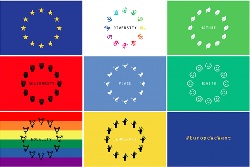
The European project renovates itself putting citizens health and quality of life on the center, as the result of a coherent and systematical political action towards the 2030 Agenda Goals, with the capacity to regain the trust of the Europeans in their institutions.
See attached
Financing Sustainability
Source: http://www.asvis.it/
The EC declares sustainable finance as unique opportunity to accelerate the modernization of Europe, spurring competitiveness and driving job creation over the long term. The transition to low-carbon technologies and towards new, sustainable models of growth requires more transparency and more resilient infrastructures.
See attached
Policy coherence for Sustainable Development 2017: Eradicating Poverty and Promoting Prosperity
Source: http: www.asvis.it/
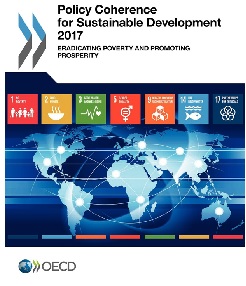
This report, written in sight of the High-Level Political Forum of the United Nations on the fight against the poverty in the world, identifies good institutional practices for enhancing policy coherence in SDGs implementation, drawing on OECD evidence and analysis.
See attached
Bridging divides
Source: http://www.oecd.org

The topic of this meeting is how low levels of confidence in the institutions, due to the inequalities’ perception, and the fear linked to the change apported by increasing migration, globalisation and technological development, need for policies developing more inclusive economies and societies.
Read more:
http://www.oecd.org/forum/issues/
L’Agenda per lo sviluppo urbano sostenibile
Source: http://www.asvis.it/, 5 June
The municipalities are the institutional dimension most close to citizens. Hence the policies fighting poverty, for the energy efficiency and the delivery of services have an immediate impact on the quality of life and on sustainable development. Asvis and Urban@it publish this document for the public consultation.
Le imprese italiane insieme per gli Obiettivi di sviluppo sostenibile
Source: http://www.asvis.it/
The organizations of Italian companies that underwrite this document commit themselves to promoting innovation in the business models in the direction of the SDGs, whose realization can increase the competitivity of Italian economic system and offer new opportunities of development and more jobs.
Laudato sì per la transizione energetica e una finanza sostenibile
Source: http://www.asvis.it/
The Catholic Church is in the forefront position in the political and cultural fight against the governance system that worked in the world so far, and which is not only about a policy for renewables, but also about a new ethic in economic and financial rules of the game.
Read more:
https://www.focsiv.it/news/laudato-si-transizione-energetica-finanza-sostenibile/
A house that produces energy
by Colin Durrant
Source: https://green.harvard.edu/
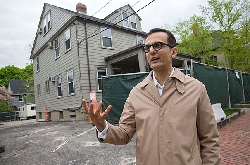
Aesthetics too is important in building “green” spaces. A city well designed helps to build beautiful houses; a house well designed makes easier to use little energy and to perceive the environmental and climate challenges our world faces as possible goals to realize and not as utopias.
Dichiarazione del Presidente Mattarella in occasione della Giornata Mondiale dell’Ambiente
Source: http://www.quirinale.it, 5 June
Everybody has the responsibility for the future. The respect for the environment means respect for legality, reduction of inequalities, refusal of war and violence, health protection, a sustainable economic growth. For these reasons, Italy renovates its commitment to the Paris Climate Agreement.
The 2030 Agenda for Sustainable Development : a new frontier of rights and progress for the EU
Source: http://www.asvis.it, 6 June
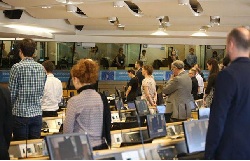
At the time precisely when others turn away from their commitments, the EU, building on its democratic and progressive values, intends to render the 2030 Agenda as a central pillar of its political identity and action. Rethinking our growth models, the role played by civil society and by culture is the key to a European leadership.
World Environment Day 5 June
Source: http://www.un.org
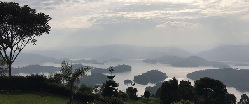
Designated by the UN since 1974, the World Environment Day is dedicated this year to the theme “Connecting people to Nature”. The personal contact with the environment spurs us to understand the importance of ecosystems invaluable for our existence as well economically measurable.
Read more:
http://www.un.org/en/events/environmentday/
Global economic prospects
Source: http://www.worldbank.org/
Growth is projected to strengthen both in developed and in developing countries. Global activity is expected to rise to 2.7 percent in 2017 and to 2.9 percent in 2018-2019. Risks for global economy include increased trade protectionism, political uncertainty, possible financial disruptions and weaker potential growth.
Maladie de Lyme: la recherche se mobilise contre la tique
by Soline Roy
Source: Le Figaro, 2 June
Ticks represent a real problem for the world public health, since they are the second vehicle of infections, from the Lyme disease to the hemorrhagic fever. Research is trying to know the ecology of this acarus, inviting common people to participate in the data collection.
Global 100 Greenhouse Gas Performance
by David Lubin, John Moorhead & Tim Nixon
Source: http://www.asvis.it, 30 May
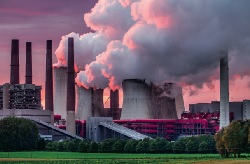
The 100 largest emitting companies produce about a quarter of global annual emissions. They have the responsibility and opportunity to become transformative leaders in the world, shaping a new model of business and new chances of economic profit towards a cleaner future.
Read more:
Climate: Towards a just transition, with no stranded workers and no stranded communities
by Sharan Burrow
Source: http://www.oecd.org,
An ambitious climate action is a just transition, part of a strategy that doesn’t strand workers, communities, sectors and includes national development plans where decent work is ensured through social dialogue and investing in workers’ reskilling.
Read more:
Air pollution is significantly weakening our hearts, major new study finds
by Ian Johnston
Source: The Independent, 27 May

Researchers in the UK found evidence of the close relationship between heart diseases and exposure to particles of pollution, especially from diesel fumes. The study proves harmful effects even below the safety limit of pollution set by the European Union for health protection.
Great Barrier Reef cannot be saved, experts say
by Ian Johnston
Source: The Independent, 30 May
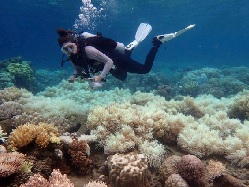
The Great Barrier Reef, declared as World Heritage Site is “in danger”. Experts urge to action for maintaining at least the “ecological function” of the reef as a whole. Greenhouse gas reduction is central to this target, whereas for coral bleaching it is already too late.
Go to the content
May-June 2017 Sustainable Development
Read the articles selected in May 2017
A child is a child
Source: https://www.unicef.org/
92% of migrant children move on their own. Outside of safe and legal channels, and not confident in the authorities, they meet every form of danger and exploitation. The Convention on the Rights of the Child is universal but requires urgently agreements to make effective the right of a kid to be only a kid.
Read more:
https://www.unicef.org/publications/files/UNICEF_A_child_is_a_child_May_2017_EN.pdf
Obesity Update 2017
Source: http://www.asvis.it/, 18 May
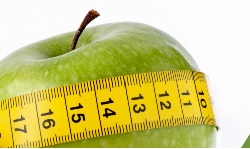
One in five adults and nearly one in six children are overweight or obese in OECD countries. Social disparities and a low level of education tend to affect obesity rates, expected to increase further. Fiscal and pricing policies, public mass- and social media campaigns, food labeling can address consumers choices.
Read more:
http://www.asvis.it/public/asvis/files/Obesity-Update-May-2017-final.pdf
Sustainable Development in the European Union
Source: http://ec.europa.eu, 2016
The last Eurostat’s publication on the current progress of the EU and its Member States towards the UN Sustainable Development Goals shows an improvement in environmental policies, in the level of education, in employment rates, but 23% of the population was still at risk of poverty in 2015.
Read more:
International Day for Biological Diversity 22 May
Source: http://www.un.org

The conservation of biodiversity is included in 2030 Agenda Goal n. 15. The Convention on Biological Diversity has acknowledged its importance for humankind and for the evolution of life. States are responsible for preventing human activities from harming their biological resources.
Read more:
http://www.un.org/en/events/biodiversityday/index.shtml
International Day against Homophobia and Transphobia focuses on health, well-being of LGBT people
Source: http://www.un.org, 17 May
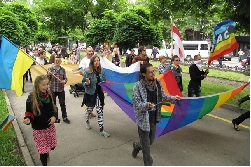
This international day is celebrated in the context of the 2030 Agenda and is focused to recognize worldwide that sexual diversity is not an expression of a physical or mental disorder that requires a cure. This belief is linked to violence and discrimination LGTB people have to face every day affecting their health and wellbeing.
Read more:
http://www.un.org/apps/news/story.asp?NewsID=53956#.WSVddGiLQdU
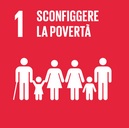
An essential role, a new approach
Source: http://www.worldbank.org, 22 Apri
The World Bank Group declares as its essential role to build a sustainable growth, achieving everyone in the fight against famine and inequality. Its support for developing countries and the worlds poor intends to address the causes of fragility and set long-term development objectives.
Read more:
http://www.worldbank.org/en/news/feature/2017/04/22/an-essential-role-a-new-approach
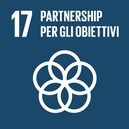
Join forces to create a better world for all
Source: http://www.unglobalcompact.org
UN Global Compact is a platform that advances partnerships for companies inspired by the SDGs and whose policies and practices are aligned with universal principles on human rights, labor, environment, and anti-corruption. Partnerships help the business and make the world better.
Read more:
https://www.unglobalcompact.org/what-is-gc/mission
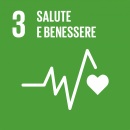
Caring for quality in health
Source: https://www.oecd.org
This report understands the concept of care for quality in modern healthcare systems as a combination of effectiveness, safety, and patient-centeredness. In the variety of approaches depending upon political traditions and priorities, it is essential to identify unresolved gaps and challenges to drive sustainable change.
Read more:
https://www.oecd.org/els/health-systems/Caring-for-Quality-in-Health-Final-report.pdf
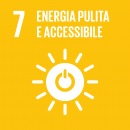
Better energy, greater prosperity
Source: http://www.se4all.org, April
The development of poor countries depends on access to affordable and reliable energy services, but the expansion of an unchanged energy system, based on fossil fuels, is unsustainable. The global transition to renewables is technically and economically possible and would deliver important benefits and economic opportunities.
Read more:
http://www.se4all.org/sites/default/files/BetterEnergy_fullReport_DIGITAL.PDF
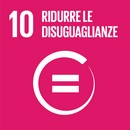
Reducing income inequality while boosting economic growth: can it be done?
Source: http://www.oecd.org/
The rising income inequality in the OECD countries can't be treated without taking into account the growth-enhancing policy reforms and the redistributive role of tax and transfer systems. In the context of technological change and globalization, education and labor market policies are paramount.
Read more:
http://www.oecd.org/eco/labour/49421421.pdf
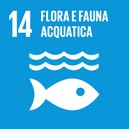
Freshwaters
Source: https://www.worldwildlife.org
Freshwater ecosystems, that host more than 100.000 species, are endangered by human activities, pollution, and climate change. Clean fresh water is rare and accounts for less than 0,01% of the planet’s surface. Wetlands serve as natural facilities for water treatment and cleaning of chemicals but are disappearing.
Read more:
https://www.worldwildlife.org/habitats/freshwaters
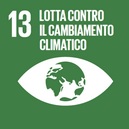
Climate Change Action Plan
Source: http://www.worldbank.org
The global warming threats the food and water security, putting at risk of poverty an additional 100 million people by 2030. But it is also a development opportunity, that the World Bank intends to exploit with the Climate Change Action Plan, supporting the sectors and activities with climate co-benefits.
Read more:
https://openknowledge.worldbank.org/bitstream/handle/10986/24451/K8860.pdf?sequence=2&isAllowed=y
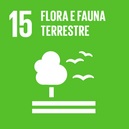
The future of beef is deforestation-free
Source: https://www.worldwildlife.org/, 21 February
80 percent of the deforested area in the Amazon is dedicated to beef production. Deforestation presents not only an enormous environmental impact but also an economic risk for companies. Global food companies with their green commitments can facilitate a sector-wide move to conserve forests.
Read more:
https://www.worldwildlife.org/blogs/on-balance/posts/the-future-of-beef-is-deforestation-free
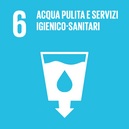
Wastewater. The untapped resource
Source: http://unesdoc.unesco.org
Wastewater produced by human activities has a detrimental impact on ecosystems and human health. If treated, wastewater can be a cost-efficient and sustainable source of energy, nutrients, organic matter, improving sanitation services and reducing infections. So how we use it is critical for achieving the entire Agenda.
Read more:
http://unesdoc.unesco.org/images/0024/002471/247153e.pdf
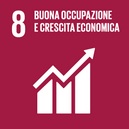
Decent work and economic growth: why it matters
Source: http://www.un.org
Only a fairly paid job, stable, able to give an economic security to families, and safe for workers, can be said decent. A decent work is what drives people out of poverty, ensures the social peace and is the fundament of democracies.
Read more:
Alaska tundra source of early-winter carbon emissions
Source: green.harvard.edu, 8 May

A study published in the Proceedings of the National Academy of Sciences shows increases in atmospheric carbon dioxide released in fall and early winter from Alaskan tundra, where the warmer temperatures decompose the organic matter of thawing soils during the Arctic summer.
Read more:
https://www.seas.harvard.edu/news/2017/05/alaska-tundra-source-of-early-winter-carbon-emissions
New crop pest takes Africa at lightning speed
by Erik Stokstad
Source: Science, 5 May
A Spodoptera frugiperda pest, native of the Americas, has invaded 21 African countries devastating maize fields. Researchers try to fight the epidemic, resistant to several pesticides, with natural products and weapons, and to avoid a heavy use of pesticide, which can trigger a disastrous chain reaction.
Read more:
http://science.sciencemag.org/content/356/6337/473.full
Artificial chicken grown from cells gets a taste test- but who will regulate it?
by Elizabeth Devitt
Source: Science, 15 March

The synthetic food derived by some U.S. startups from cultured cells opens the question about the regulation of agricultural biotechnology, under the FDA competence, while now also genetically modified products pose health risks.
Read more:
Natural marine world heritage in the Arctic Ocean
Source: http://www.asvis.it, 25 April
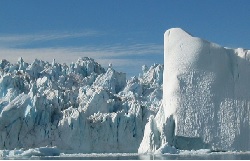
The Arctic Ocean has a profound impact on the climate and wellbeing of ecosystems all around the globe. As Arctic sea ice retreats, the irruption of new exploitation activities urges an enhanced protection for this areas through the World Heritage Convention.
Read more:
https://portals.iucn.org/library/sites/library/files/documents/2017-006.pdf
Global diets link environmental sustainability and human health
by David Tilman & Michael Clark
Source: Nature, 12 November 2014
The global transition towards processed food affects human and environmental health, whereas almost a billion people still suffer from inadequate and insecure nutrition. Alternative diets are a global challenge and opportunity for public health and environment.
Read more:
http://www.nature.com/nature/journal/v515/n7528/full/nature13959.html
Report of the Special Rapporteur on the issue of human rights obligations relating to the enjoyment of a safe, clean, healthy and sustainable environment
Source: http://www.asvis.it, 24 April
This Report developed with the UN Environment Programme represents a rights-based approach to environmental issues which offers guiding principles on the obligations relating to the environment and sourced in human rights.
Read more:
http://www.refworld.org/docid/58ad9dd44.html
Il futuro demografico del Paese
Source: http://www.asvis.it/

The demographic drop in Italy, whose population turns out to be the eldest in Europe, will affect seriously the economic development and the social security. It will be indispensable to welcome a number of immigrants estimated after an Istat report between 250.000 and 300.000.
Read more:
http://www.istat.it/it/archivio/199142
SEforALL Forum seeks to accelerate energy access, productivity
Source: http://www.asvis.it/, 17 April
The 3rd Sustainable Energy for All Forum, held in New York from 3-5 April monitored the progress to SDG 7 (affordable and clean energy for all) to launch new partnerships and ideas, spur investment and double the share of renewable energy, ensuring the universal access to modern energy services.
Read more:
http://sdg.iisd.org/news/seforall-forum-seeks-to-accelerate-energy-access-productivity/
The Ocean Economy in 2030
Source: http://www.oecd.org, 27 April
The ocean economy is a key source for the future of humankind and is undergoing a profound transition, in response to climate change and pioneering technologies. Realising the full potential of the ocean economy which is impressive for innovation and economic growth requires a responsible, sustainable approach.
Read more:
Bioengineering: solar upgrade
by Katherine Bourzac
Source: Nature, 27 April
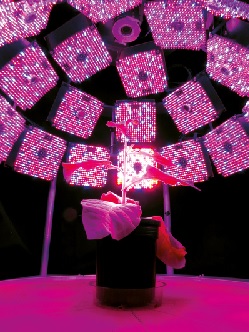
To feed the world the global agricultural production will have to rise about 50%, so governments are investing in research to optimize photosynthesis to boost crop production. The genetic modification of photosynthesis will provide for the inefficiencies of light absorption and photoprotection, reinventing plants.
Read more:
https://www.nature.com/nature/journal/v544/n7651_supp/full/544S11a.html
April 2017 Sustainable Development
Read the articles selected in April 2017
Sostenibilità e Pubblica amministrazione per Agenda 2030: tre giorni al Forum Pa
by Elis Viettone
Source: http://www.asvis.it/, 21 April

From 23 to 5 May it will take place at the Rome Convention Center “La Nuvola” the meeting on the Public Administration, focused on the Sustainable Development, and how its link with public activities and technological innovation is important in the wellbeing perception within the whole society.
Read more:
Festival dello sviluppo sostenibile, già oltre 150 eventi in programma
Source: http://www.asvis.it/, 5 April

Now that the SDGs shape the framework of European politics, a few months before the Italian political elections and in connection with the summit G7 in Taormina, the Festival dello Sviluppo Sostenibile that will take place from 22 May to 7 June is going to stage 150 events for the spread of sustainable culture in Italy.
Read more:
International Mother Earth Day 22 April
Source: http://www.un.org

The theme for 2017 Mother Earth Day is “Environmental and Climate Literacy”. Education gives awareness around the gift of life and sustenance that the Earth provides us and the challenges regarding the present and future inhabitants of the Planet to trigger a social and economic progress in harmony with nature.
Read more:
http://www.un.org/en/events/motherearthday/index.shtml
Mobilising bond markets for a low-carbon transition
Source: http://www.oecd.org/
Bond finance fits for investments in low-carbon and climate resilient infrastructures, charachterised by high upfront capital costs, but with a wider set of benefits and returns. As low-carbon technologies mature and become more cost-competitive, the share of low-carbon bonds is expected to grow.
Read more:
New technology brings Star Wars-style desert moisture farming a step closer
by Amin Al-Habaibeh
Source: Scientific American, 18 April

Researchers have invented a device to provide drinking water in arid or desert regions using frameworks of metal and organic molecules empowered by sunlight, that are able to draw from air water vapour. Alternative technologies recycle old fridges and electronic waste to capture moisture.
Read more:
Famine looms for millions: UN Member States urged to “dig deep into reserves of common humanity”
Source: http://www.un.org, 13 April

An humanitarian crisis has hit 20 millions of people that suffer from famine and is killing 1.4 million children for severe acute malnutrition. General Secretary calls on to raise international awareness of this situation in the Member States, as well to mobilize the world with its resources of common humanity and empathy.
Read more:
http://www.un.org/apps/news/story.asp?NewsID=56564#.WPB_vIiLQdU
Depression and other common mental disorders
Source: http://www.asvis.it, 7 April

Depressive and anxiety disorders are going up across the world. Globally, the people affected by these deseases, that have huge consequences in terms of social cost and disability, were 300 million in 2015. This epidemiological study by WHO provides country-specific estimates for an appropriate public health response.
Read more:
http://apps.who.int/iris/bitstream/10665/254610/1/WHO-MSD-MER-2017.2-eng.pdf
Malala Yousafzai designated youngest-ever UN Messenger of Peace
Source: http://www.un.org, 10 April

UN secretary-General António Guterres ha designated Malala Yousafzai as an UN Messenger of Peace for her fight for children’s rights, in particular the right to education, especially of girls. After Malala words, education makes people in the condition to raise their voice against terror.
Read more:
http://www.un.org/apps/news/story.asp?NewsID=56536#.WOyZGYiLQdV
Greening household behaviour
Source: http://www.oecd.org

Households behaviour has an impact on environment. Governments are studying how influencing households attitudes in areas with an environmental footprint. An OECD survey conducted in 11 countries analysed the role of financial incentives and the provision of infrastructures and services in shaping eco-friendly choices.
Consulta l’articolo:
Do environmental policies affect global value chains?
by Tomasz Kozluk, & Christina Timiliotis
Source: http://www.oecd.org/
Environmental policies can influence those industrial activities fragmented in countries with laxer environmental standards. Though green policies don’t have an influence on the pattern of international trade, more stringent domestic policies can be turn out in a comparative advantage for "clean" industries.
Read more:
Nasce il “Gender gap analysis tool” per la parità di genere nelle imprese
by Lucilla Persichetti
Source: http://www.asvis.it/

Gender equality can potentially add more than $12 trillion dollars to global GDP and is crucial to sustainable growth. UN Global Compact has launched a platform for companies, inspired by “Womens empowerment principles” to assess gender equality good practices in leadership, workplace, marketplace, and community.
Read more:
World Economic Situation Prospects
Source: http://www.asvis.it/, 20 March

The prolonged slowdown in global economic growth hampers the mobilization of significant financial resources required to achieve the SDGs. Aligning institutional investments with sustainable development requires to address financial governance patterns and regulatory frameworks.
Read more:
Primary microplastics in the Oceans: a global evaluation of sources
by Julien Boucher & Damien Friot
Source: http://www.asvis.it, 9 March

Every year flow in the oceans 9.5 million tonnes of new plastic waste, putting the ecosystem and our health at risk. Marine plastics pollution has a multitude of sources that require a holistic approach to change the way we design, produce, consume and dispose of plastics.
Read more:
https://portals.iucn.org/library/sites/library/files/documents/2017-002.pdf
The intertwining of Romanticism and science through metaphor
by Oliver George
Source: https://green.harvard.edu, 23 February
The recent environmental literature written by scientists to demonstrate in a scientific and rational discourse how pollution is worsening the Earth and its inhabitants, draws from Romanticism metaphers that represent the Planet like a living organism in symbiosis with all beings and things.
Read more:
https://green.harvard.edu/news/intertwining-romanticism-and-science-through-metaphor
La finanza per il clima offre opportunità importanti per le imprese
Source: http://www.asvis.it/, 24 March

The industrial system is elaborating a new model of finance for a sustainable development closely linked with technological innovation. A new Confindustria’s web portal focused on climate, renewables and energy efficiency is going to spread information and certainties for investors.
Read more:
Health policy in Italy
Source: http://www.oecd.org/, November 2015
An OECD report on Italy’s health system highlights a large regional variation in outcomes and health care quality, increased chronic illnesses related to the ageing population, the highest OECD average of overweight children, and a high volume of antibiotics prescribed correlated with bacterial resistance.
Read more:
http://www.oecd.org/health/health-systems/Health-Policy-in-Italy-November-2015.pdf
Prima presentazione del programma governativo per il G7 Ambiente
by Giulia D’Agata
Source: http://www.asvis.it/, 27 March

On 11 and 12 June in Bologna will take place the G7, a dialogue on sustainable development and climate change, open to the delegations of other States and based on the New York and Paris agreements to face issues like marine litter, Carbon tax and the multilateral development banks.
Read more:
Diffuse pollution, degraded waters
Source: http://www.oecd.org, 22 March
Water pollution comes from diverse sources, mainly agricultural and urban. It affects human health, water security, economic productivity, freshwater, ecosystem services. Completely eliminating water pollution is technically and costly impossible but it is up to a political decision to set a society’s level of acceptable risk
Read more:
President Trump rolls back progress made on crucial climate change policy
Source: https://www.worldwildlife.org, 28 March

President Trump has revoked the Clean Power Plan, a law to reduce carbon emissions in the production of the US, the largest contributor worldwide to carbon pollution. While the renewables economy is already creating millions of jobs, the safeguard of our planet is a priority for all.
Read more:
World Autism Awareness Day (2 April)
Source: http://www.un.org/

The UN Convention on the Rights of Persons with Disabilities is the first comprehensive human rights Treaty , entered into force on 23 May 2008. On 2 May the UN celebrates the World Autism Awareness Day. Autism is a neurological condition irrespective of gender, race or socio-economicus status.
Read more:
http://www.un.org/en/events/autismday/index.shtml
Euro area unemployment at 9.5%
Source: Eurostat, 3 April
19.750 people in the EU were unemployed in February 2017, for a rate of 9,5%, the lowest recorded in the euro area since 2009. Within the EU, the highest unemployment rates are recorded in Greece and Spain; the lowest ones are reported in the Czech Republic, Germany and Malta.
Read more:
January Sustainable Development
Read the articles selected in January 2017
Better business, better world
Source: http://www.asvis.it/
The Global Goals, that include a socially, not only low-carbon but also environmentally sustainable development, create at least $12 trillion opportunities. A progressive, profit–oriented business gains reputation and drives innovation.
Read more:
http://report.businesscommission.org/report
Holocaust Remembrance Day
Source: http://www.un.org/

In 2005 the United Nation wanted to designate 27 January as International Day in commemoration of the Holocaust, against any historical denial of this colossal crime to help people who suffer the consequences of hatred, bigotry, racism, and prejudice.
Read more:
http://www.un.org/en/holocaustremembrance/2017/calendar2017.html
New approach needed to tackle rising drug prices
Source: http://www.oecd.org/, 16 January
Rising drug prices, the development of high-cost medicines and of precision medicine requires Governments to study new approaches to make treatments more affordable, and the necessary powers to regulate prices and cut inefficient technologies.
Read more:
https://www.oecd.org/health/new-approach-needed-to-tackle-rising-drug-prices.htm
2016, l’anno più caldo della storia
Source: http://www.asvis.it/

It is as urgent and decisive as ever to apply rapidly and really the Paris climate agreement. In Italy, if things don’t change is predicted an average temperature increase of 6 degrees. 2016 has been the hottest year ever documented.
Read more:
Climate change, impacts and vulnerability in Europe 2016
Source: http://www.asvis.it/

After the EEA, climate change, related to already constant conditions and extreme wheather events have wide-ranging impacts on ecosystems and on human health and well-being in Europe, and hit especially, and also economically, southern Europe.
Read more:
Il discorso di Francesco alla “Rome Roundtable” della Global Foundation
Source: http://www.asvis.it/, 15 January

At the roundtable of the Global Foundation, Pope Francis reminded the God-given dignity of the poorest, and that a society that selects and discards people on their productivity produces soul-less machines. Only a “cooperative” globalization can promote a genuine economic and social progress.
Read more:
This battery ingredient is more often used in a pie than as a power source
by Bruce Gellerman
Source: https://green.harvard.edu/, 10 January

A team of Harvard University has created an organic battery using rhubarb's molecules that store and transfer energy, after evaluating hundreds of thousands of compounds. The usefulness of this invention concerns, in particular, the renewables, that have a power depending on weather conditions.
Read more:
http://www.wbur.org/bostonomix/2017/01/10/rhubarb-battery-storage
Diversity “is richness, not a threat”, UN chief Guterres tells forum on combatting anti-Muslim discrimination
Source: http://www.un.org/, 17 January

In this address, Secretary General António Gutierrez stands up against bigotry and hatred to fight every form of discrimination, affirming the value and the richness of the socio-cultural and ethnic diversity, while anti-Muslim hate crimes, anti-Semitism, xenophobia and racism are on the rise.
Read more:
http://www.un.org/apps/news/story.asp?NewsID=55983#.WH9gThvhAdV
India’s first GM food crop held up by lawsuit
by Sanjay Kumar
Source: Nature, 18 January

The approval of the first transgenic food crop in India has been delayed because of a law suit launched by anti-GM farming organizations denouncing the unsafety of this controversial technology, that on the other side could solve the food supply problems of the growing country’s population.
Consulta l’articolo:
http://www.nature.com/news/india-s-first-gm-food-crop-held-up-by-lawsuit-1.21303
2017, année de la “dernière chance” pour enrayer la tragédie des migrants
by Enrico Letta
Source: Le Monde, 17 January
The migrants' tragedy is not just an emergency and a problem for the EU, but it is an opportunity that requires structural answers and an active and cohesive political role that would help to overtake the mistrust of its citizens in its institutions.
See attached
Il posizionamento italiano rispetto ai 17 Obiettivi per lo Sviluppo sostenibile delle Nazioni Unite
Source: http://www.asvis.it/, 4 January 2017
The Italian Ministry for the Environment presented a report on the current state of the art in our country compared to the 17 Goals of the 2030 Agenda that defines a general condition of immaturity in most of them, just tempered by some positive marks about food, women, and water.
Read more:
Putting a human face on climate change.
by Karen Feldscher
Source: https://green.harvard.edu/, 22 December 2016

Climate change is not a remote, abstract problem but it is directly linked to an increase in diseases, like cardiovascular illnesses, epidemics, and malnutrition. Although it is clearly a political problem, individual and household behavior represents 60% of national carbon consumption.
Read more:
https://www.hsph.harvard.edu/news/features/climate-change-symposium/
Assessing recent warming using instrumentally homogeneus sea surface temperature records
by Zeke Hausfather, Kevin Cowtan, David C. Clarke, Peter Jacobs, Mark Richardson & Robert Rohde
Source: Science, 4 January
Sea surface temperature is an important indicator of climate and ecosystems changes. Inhomogeneities in the measurement methods, buoy-based or used by different ships, led to underestimating a high trend of warming in recent years.
Read more:
http://advances.sciencemag.org/content/3/1/e1601207.full
Steps to overcome the North-South divide in research relevant to climate change policy and practice
by M. Blicharska, R. J. Smithers, M. Kuchler , G. K. Agrawal, J. M. Gutiérrez , A. Hassanali, S. Huq , S. H. Koller, S. Marjit , H. M. Mshinda, H. H. Masjuki, N. W. Solomons, J. Van Staden & G. Mikusińsk.
Source: Nature Climate Change, 4 January
Science is not plainly neutral, in particular, if linked with social and political issues, and the fact that most of the research about climate change is produced in the Northern side of the world is a matter of credibility and legitimacy of this science and determines the degree of participation of Southern countries to global agreements.
Read more:
http://www.eenews.net/assets/2017/01/06/document_cw_02.pdf
Fao’s work on climate change – United Nations Climate Change Conference 2016
Source: http://www.fao.org/
800 millions of people in the world are chronically hungry. Climate change puts under threat food production systems. The Goal of eradicating hunger includes climate justice, a human-centered approach, especially in vulnerability conditions, a sustainable and resilient agriculture.
Read more:
http://www.fao.org/3/a-i6273e.pdf
Go to the content
December 2017 Sustainable Development
Read the articles selected in December 2017
November 2017 Sustainable Development
Read the articles selected in November 2017
October 2017 Sustainable Development
Read the articles selected in October 2017
September 2017 Sustainable Development
Read the articles selected in September 2017
August 2017 Sustainable Development
Read the articles selected in August 2017
July 2017 Sustainable Development
Read the articles selected in July 2017
March Sustainable Development
Read the articles selected in March 2017
February Sustainable Development
Read the articles selected in February 2017

